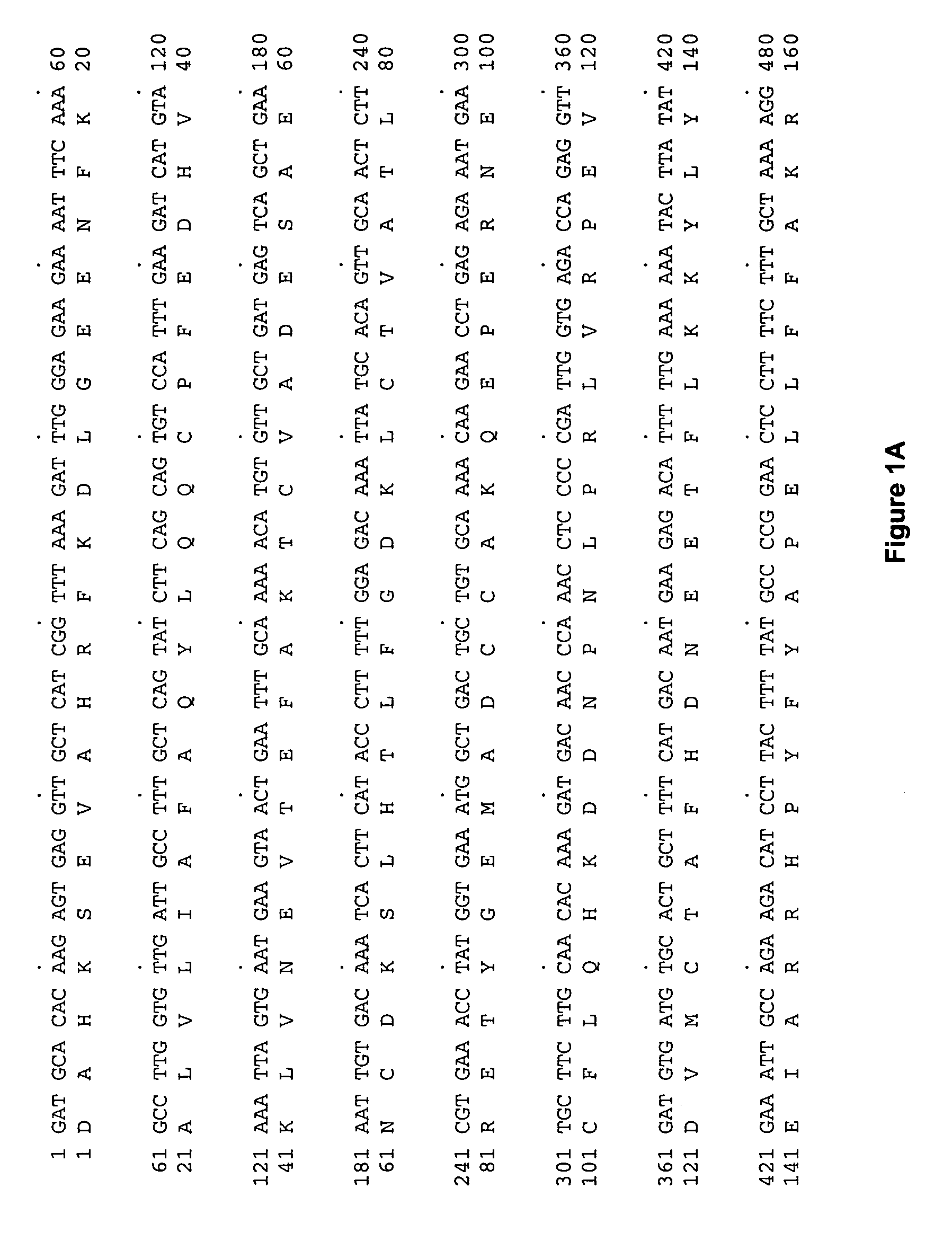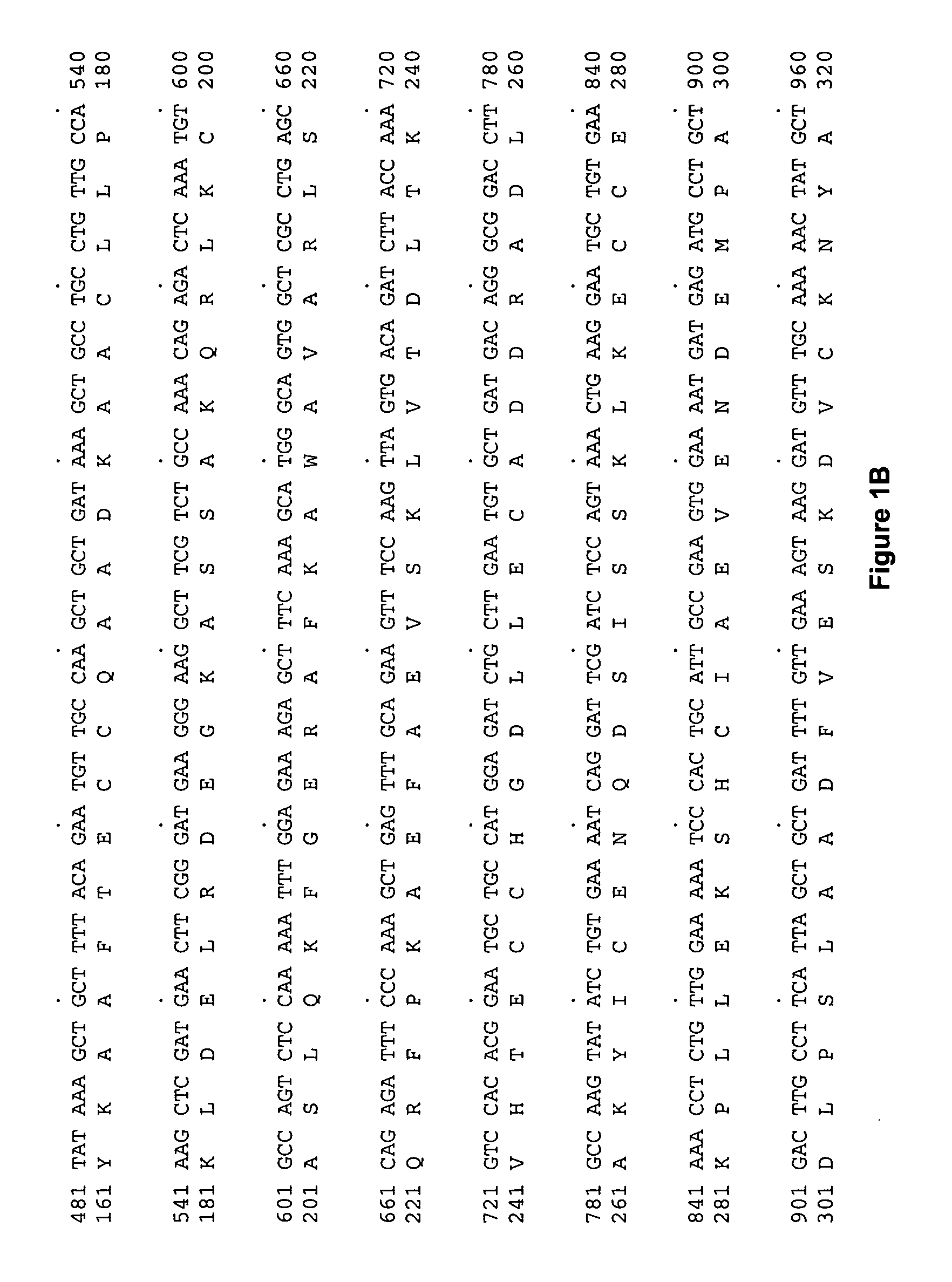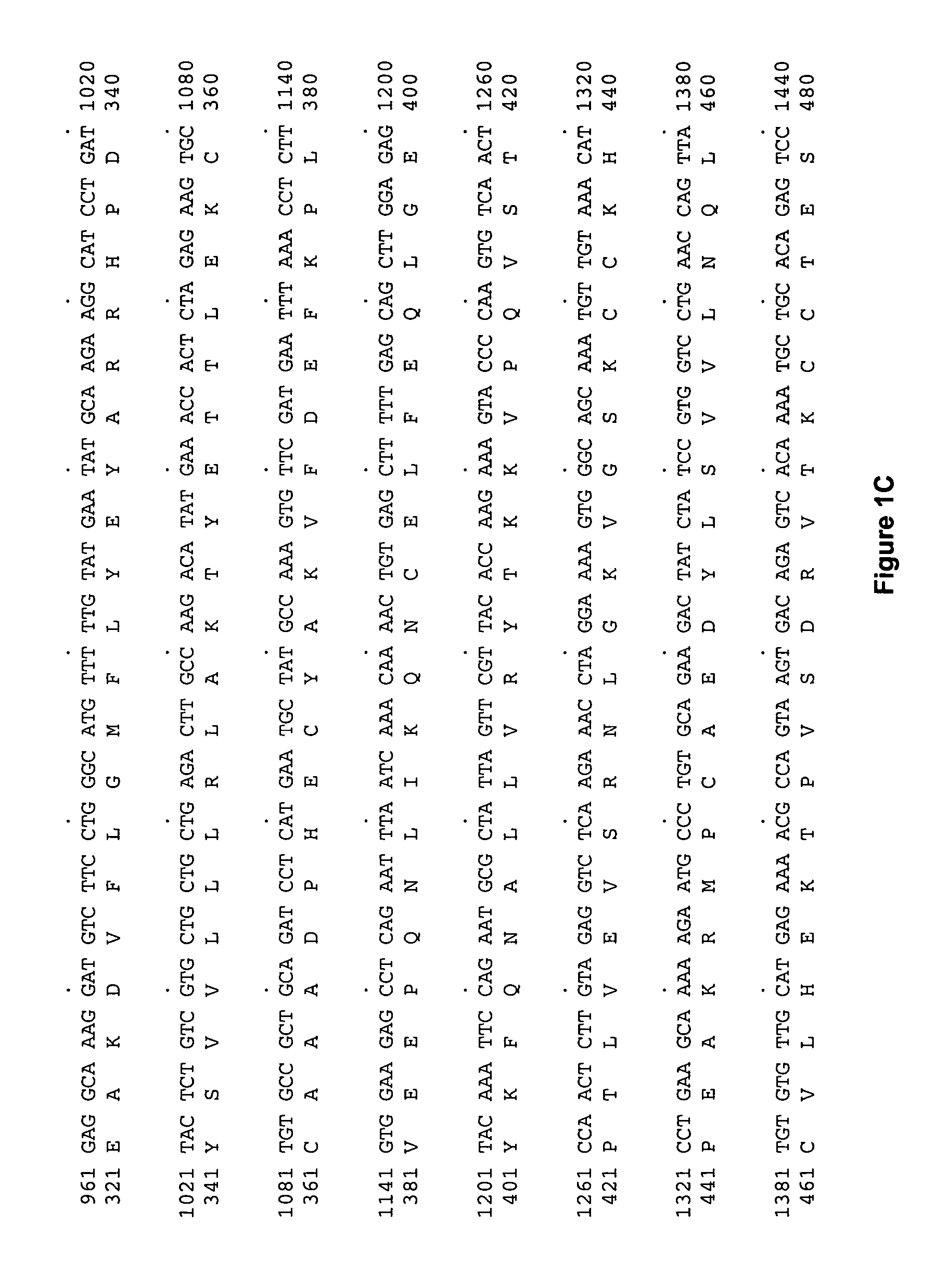Albumin fusion proteins
a fusion protein and albumin technology, applied in the field of therapeutic proteins, can solve the problems of difficult transport and/or storage of molecules, difficult storage of molecules, etc., and achieve the effects of increasing the plasma stability of therapeutic proteins, prolonging the shelf life of therapeutic proteins, and stabilizing therapeutic proteins
- Summary
- Abstract
- Description
- Claims
- Application Information
AI Technical Summary
Benefits of technology
Problems solved by technology
Method used
Image
Examples
example 1
Generation of pScNHSA and pScCHSA
[1030] The vectors pScNHSA (ATCC® Deposit No. PTA-3279) and pScCHSA (ATCC® Deposit No. PTA-3276) are derivatives of pPPC0005 (ATCC® Deposit No. PTA-3278) and are used as cloning vectors into which polynucleotides encoding a therapeutic protein or fragment or variant thereof is inserted adjacent to and in translation frame with polynucleotides encoding human serum albumin “HSA”. pScCHSA may be used for generating Therapeutic protein-HSA fusions, while pScNHSA may be used to generate HSA-Therapeutic protein fusions.
[1031] Generation of pScCHSA: Albumin Fusion with the Albumin Moiety C-Terminal to the Therapeutic Portion.
[1032] A vector to facilitate cloning DNA encoding a Therapeutic protein N-terminal to DNA encoding the mature albumin protein was made by altering the nucleic acid sequence that encodes the chimeric HSA signal peptide in pPPC0005 to include the Xho I and Cla I restriction sites.
[1033] First, the Xho I and Cla I sites inherent to pP...
example 2
General Construct Generation for Yeast Transformation
[1041] The vectors pScNHSA and pScCHSA may be used as cloning vectors into which polynucleotides encoding a therapeutic protein or fragment or variant thereof is inserted adjacent to polynucleotides encoding mature human serum albumin “HSA”. pScCHSA is used for generating Therapeutic protein-HSA fusions, while pScNHSA may be used to generate HSA-Therapeutic protein fusions.
[1042] Generation of Albumin Fusion Constructs Comprising HSA-Therapeutic Protein Fusion Products.
[1043] DNA encoding a Therapeutic protein (e.g., sequences shown in SEQ ID NO:X or known in the art) may be PCR amplified using the primers which facilitate the generation of a fusion construct (e.g., by adding restriction sites, encoding seamless fusions, encoding linker sequences, etc.) For example, one skilled in the art could design a 5′ primer that adds polynucleotides encoding the last four amino acids of the mature form of HSA (and containing the Bsu361 si...
example 3
General Expression in Yeast S. cerevisiae
[1049] An expression vector compatible with yeast expression can be transformed into yeast S. cerevisiae by lithium acetate transformation, electroporation, or other methods known in the art and or as described in part in Sambrook, Fritsch, and Maniatis. 1989. “Molecular Cloning: A Laboratory Manual, 2nd edition”, volumes 1-3, and in Ausubel et al. 2000. Massachusetts General Hospital and Harvard Medical School “Current Protocols in Molecular Biology”, volumes 1-4. The expression vectors are introduced into S. cerevisiae strains DXY1, D88, or BXP10 by transformation, individual transformants can be grown, for example, for 3 days at 30° C. in 10 mL YEPD (1% w / v yeast extract, 2% w / v, peptone, 2% w / v, dextrose), and cells can be collected at stationary phase after 60 hours of growth. Supernatants are collected by clarifying cells at 3000 g for 10 minutes.
[1050] pSAC35 (Sleep et al., 1990, Biotechnology 8:42 and see FIG. 3) comprises, in addit...
PUM
| Property | Measurement | Unit |
|---|---|---|
| plasma stability | aaaaa | aaaaa |
| composition | aaaaa | aaaaa |
| nucleic acid | aaaaa | aaaaa |
Abstract
Description
Claims
Application Information
 Login to View More
Login to View More - R&D
- Intellectual Property
- Life Sciences
- Materials
- Tech Scout
- Unparalleled Data Quality
- Higher Quality Content
- 60% Fewer Hallucinations
Browse by: Latest US Patents, China's latest patents, Technical Efficacy Thesaurus, Application Domain, Technology Topic, Popular Technical Reports.
© 2025 PatSnap. All rights reserved.Legal|Privacy policy|Modern Slavery Act Transparency Statement|Sitemap|About US| Contact US: help@patsnap.com



